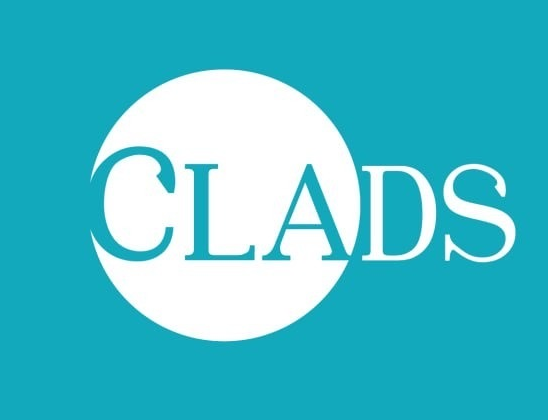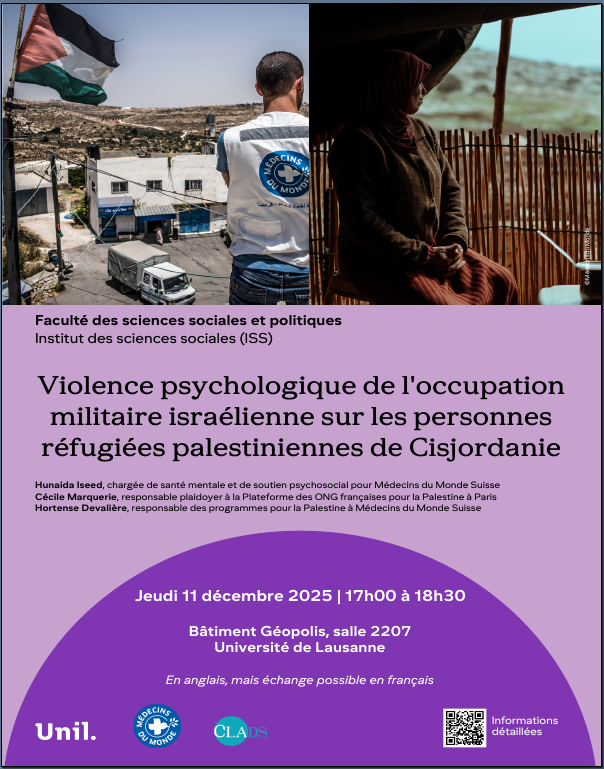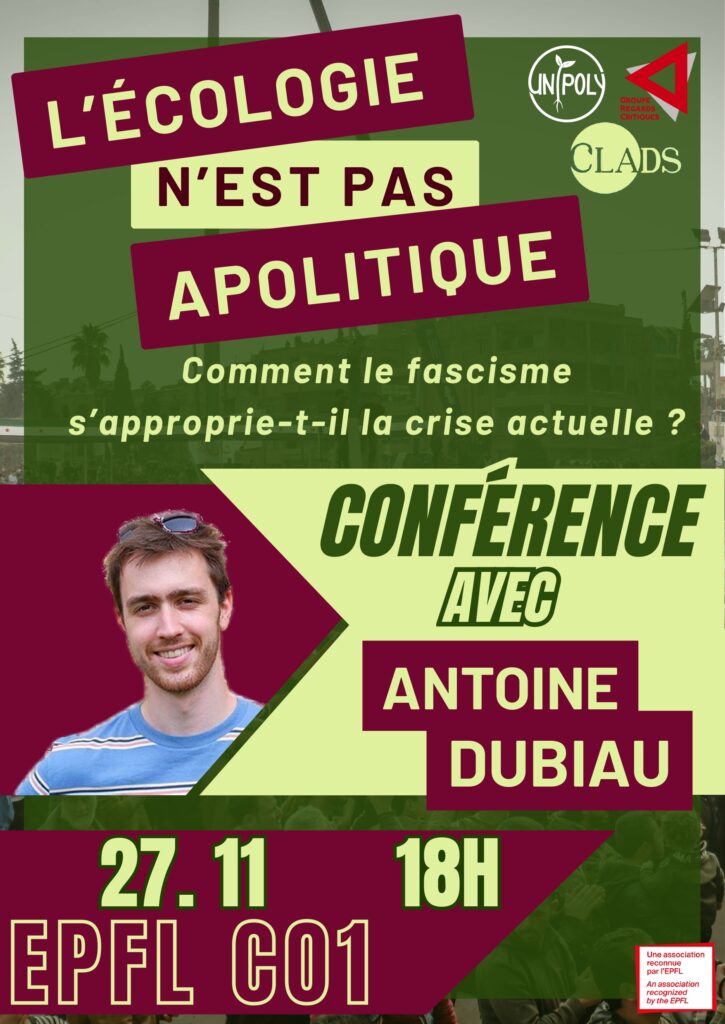About us ?
The Collective for academic freedom, democracy and solidarity (CLADS) is a non-profit association, founded on 11 December 2024. It brings together staff from the University of Lausanne, the EPFL and other tertiary institutions in the Canton of Vaud. It respects the principles of the University of Lausanne Charter and the EPFL Ethics Charter. It is based on an understanding of the University that is democratic in operation, open in access, critical in the construction of knowledge, opposed to all forms of discrimination, supportive and respectful of human rights and international law, and free from repression of these rights.
Goals
CLADS pursues the following goals:
- to protect the autonomy of higher education universities and colleges, and ensure that these institutions respect the values inherent in the fulfillment of their purposes of research and education;
- to ensure the respect of the academic freedom of lecturers/researchers, and defend them against any infringement of this fundamental freedom in the exercise of their profession;
- to protect and promote the creation of critical knowledge within universities and colleges, and their duty to publicize it in accordance with the critical function that these institutions must embrace;
- to protect data gathered by researchers from seizure;
- to defend the freedom of expression of lecturers/researchers in the public arena, and encourage them to engage with the public, based upon the values that underpin scientific work;
- to defend freedom of expression and assembly for all members of universities and colleges;
- to express and develop active solidarity with members of academic institutions who are in danger, in Switzerland and around the world.
Organisation
CLADS is led by a committee, which is organised into working groups on different issues.
Join us to contribute to a working group and propose actions!
The committee:
- Nicolas Bancel, full professor, SSP, Unil
- Mounia Bennani-Chraïbi, full professor, SSP, Unil (secretary)
- Sébastien Chauvin, associate professor, SSP, Unil
- Joseph Daher, guest professor, SSP, Unil
- Garance Durr-Legoupil-Nicoud, PhD researcher, Physique, EPFL
- Olivier Fillieule, full professor, SSP, Unil
- Antoine Iweins, ENAC, EPFL
- Laurent Le Forestier, full professor, Lettres, Unil
- Eléonore Lépinard, full professor, SSP, Unil
- Irene Maffi, full professor, SSP, Unil
- Guillaume Matthey, PhD researcher, SSP, Unil
- Elio Panese, PhD researcher, FDCA, Unil
- Francesco Panese, full professor, SSP, Unil
- Yves Pedrazzini, associate researcher, ENAC, EPFL
- Stéfanie Prezioso, associate professor, SSP, Unil
- Jamila Sam, senior scientist, IC, EPFL (co-présidente)
- Julia Steinberger, full professor, FGSE, Unil (co-présidente)
- Josselin Tricou, MA, FTSR, Unil
- Bernard Voutat, emeritus professor, SSP, Unil
Membership
Events
Actions
Our forthcoming and recent events
- Psychological violence of the Israeli military occupation on Palestinian refugees in the West BankDecember 11th, 2025 – 17:00 Géopolis 2207 Presentation and discussion of the latest Médecins du Monde report, organized by Francesco Panese and Antoine Kernen
- Conference with Antoine Dubiau «L’écologie n’est pas apolitique»Thursday November 27th 2025 – 18:00, Room CO1, EPFL
Event co-organized by the associations Unipoly and Groupe Regards Critiques


